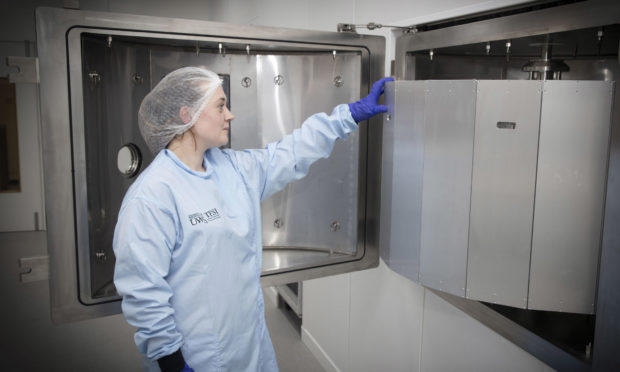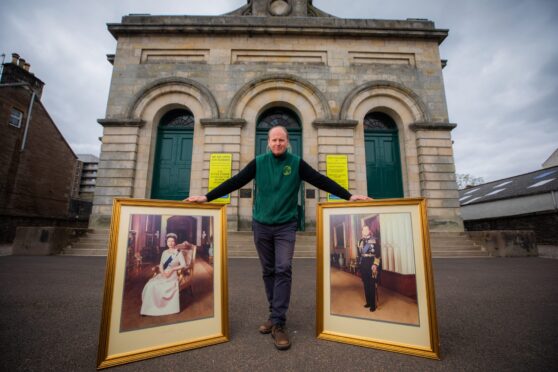A Fife firm has joined with academics to produce innovative thin film-based chips to help prevent the spread of coronavirus.
Working in partnership with Glenrothes-based semi-conductor foundry Semefab, researchers Professor Des Gibson and Dr David Hutson of the University of the West of Scotland’s Institute of Thin Films, Sensors and Imaging (ITFSI), have produced the technology.
It will be part of non-contact thermometers, with the firm receiving orders for more than 12 million of the chips from across the world.
Developed in conjunction with Semefab, through the university’s ITFSI and with external funding, the sensors embedded in the chips absorb infrared radiation, giving an accurate measurement of human body temperature without the need for contact.
Professor Gibson, director of the institute, said: “By reducing the need for close contact and the risk of cross-contamination, the infrared sensor technology to come out of UWS has real potential to have a global impact in the fight against coronavirus.
“This is a great example of the fantastic work that can be achieved when academics and industry work together to find solutions to real-world issues.”
Allan James, managing director at Semefab, added: “The innovative collaborative project with UWS has provided Semefab with core technology which, combined with our high volume production capabilities, brings this remote temperature sensing product to market.”










